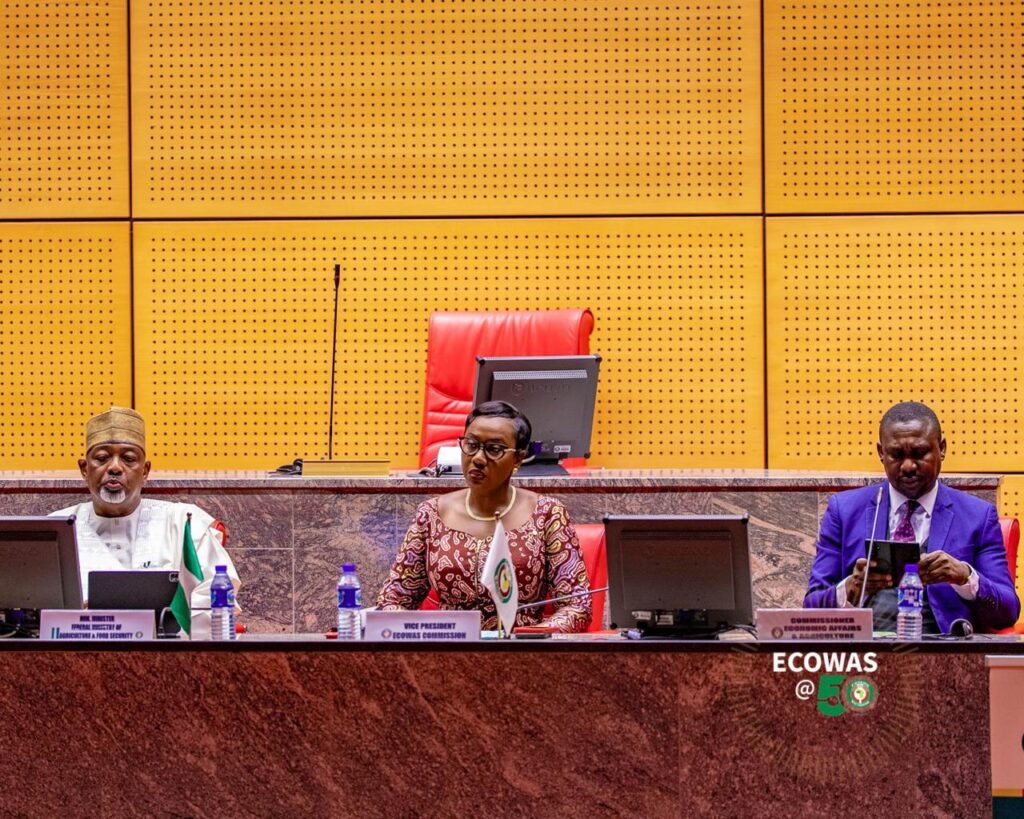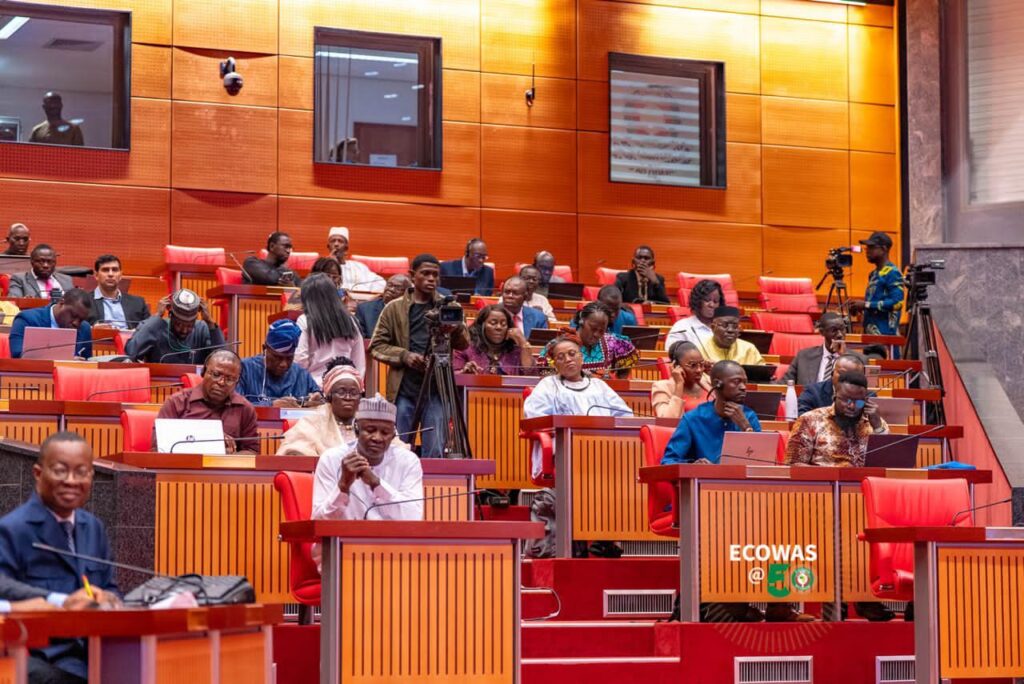ECOWAS LAUNCHES FIVE-IN-ONE REGIONAL PUSH IN ABUJA TO FAST-TRACK WEST AFRICA’S ECONOMIC & AGRICULTURAL INTEGRATION
By Raymond Enoch
The ECOWAS Parliament Conference Hall in Abuja, Nigeria, came alive today, 26 November 2025, as the ECOWAS Commission, through its Department of Economic Affairs and Agriculture, officially launched five strategic regional meetings designed to fast-track economic and agricultural integration across West Africa.

The high-level joint opening ceremony brought together senior ECOWAS officials, including Vice President Madame Damtien Tchintchibidja and Dr. Kalilou Sylla, Commissioner for Economic Affairs and Agriculture, alongside top Nigerian government officials led by the Honourable Minister of Agriculture and Food Security, Senator Abubakar Kyari. Also in attendance were representatives of the Nigerian Ministers of Environment, Trade & Investment, and Foreign Affairs, as well as regional experts, development partners and private-sector stakeholders.

At the heart of the Abuja gathering is a bold regional agenda: to deepen integration, expand intra-regional trade, modernise agriculture, protect the environment, boost food and nutrition security, and stimulate inclusive economic growth in all ECOWAS Member States.
The five regional meetings, which will run in parallel from 26 November to 3 December 2025, are:
Meeting on the ECOWAS E-commerce Strategy
Meeting on the Trade in Services Programme
Meeting on Environmental Protection through Plastic Pollution Management
Third Statutory Meeting of the West African Fertilizer Control Committee (WACoFeC)
Annual Meeting of the Technical Committees for Monitoring the Implementation of Projects and Programmes of the Regional Agricultural Policy (ECOWAP)
According to the ECOWAS Commission, bringing these platforms under one joint opening at the ECOWAS Parliament is a deliberate move to ensure greater coherence and consistency in the actions of its various directorates, while strengthening the visibility, credibility and field impact of the Community’s interventions.
Officials stressed that the initiatives are designed to serve as an “umbilical cord” between the ECOWAS Commission, Member States and grassroots communities, especially in the face of the current difficult socio-political and security context in the region. By reinforcing communication and coordination, ECOWAS aims to stay as close as possible to its populations and to minimise the negative effects of regional instability on livelihoods, trade and food systems.
The meetings are firmly anchored in ECOWAS Vision 2050 – “ECOWAS of the People: Peace and Prosperity for All by 2050” – and aligned with the African Union’s Agenda 2063, reflecting a strong push for long-term transformation rather than isolated technical discussions.
On the economic front, the E-commerce Strategy and Trade in Services Programme meetings are expected to chart pathways for harnessing digital trade and services as engines of regional growth. ECOWAS officials underline that the Community “must not be left on the sidelines when it comes to promoting e-commerce”, insisting that mastering digital trade is now essential for deepening regional cooperation and integration, particularly for youth and SMEs.
On the agricultural side, the ECOWAP technical committees and the WACoFeC meeting are focusing on raising agricultural productivity, improving the quality and control of fertilizers, and reinforcing policy implementation to secure food and nutrition security across West Africa. With agriculture described as “the foundation of our economy,” participants reiterated the need to modernise the sector and work closely with all stakeholders – farmers, private operators, researchers and development partners.
Environmental sustainability also took centre stage. The dedicated plastic pollution management meeting is sounding the alarm on the growing threat of plastics to ecosystems, health and livelihoods. Plastic waste is now framed not only as an environmental hazard but as a socio-economic priority requiring urgent, collective and affirmative action by Member States. ECOWAS is positioning itself as a convening platform for joint regional responses to this challenge.
Speaking at the Parliament Conference Hall, ECOWAS representatives emphasised that environmental protection, food and nutrition security, and the promotion of trade-friendly tools such as e-commerce and services liberalisation are “essential steps towards achieving the ECOWAS of the People vision.”
Through the joint opening, the Commission is also showcasing selected achievements in agricultural, environmental and trade sectors, with the dual objective of mobilising stronger political support from Member States and deepening cooperation with regional and international partners.
As the five meetings unfold over the coming days in Abuja, expectations are high that they will generate concrete recommendations, harmonised regional tools and renewed commitments capable of moving West Africa closer to a more integrated, resilient and people-centred economic space.










